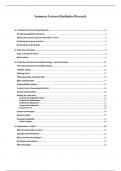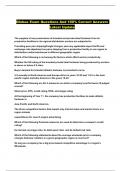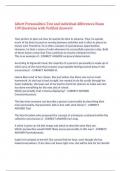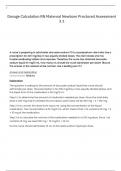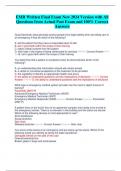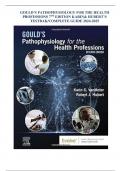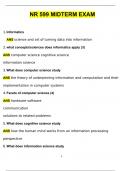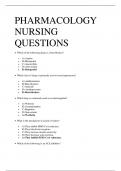Samenvatting
Summary Qualitative Research Lectures and Book, for the course Communication Science premaster at UTwente
In this document you'll find exam information for the course Qualitative Research in Communication Science premaster. In the book summary chapters 1 to 6 and 9 are there. The other summary contains information from the lectures, which was also exam material. In there different ways to conduct quali...
[Meer zien]
